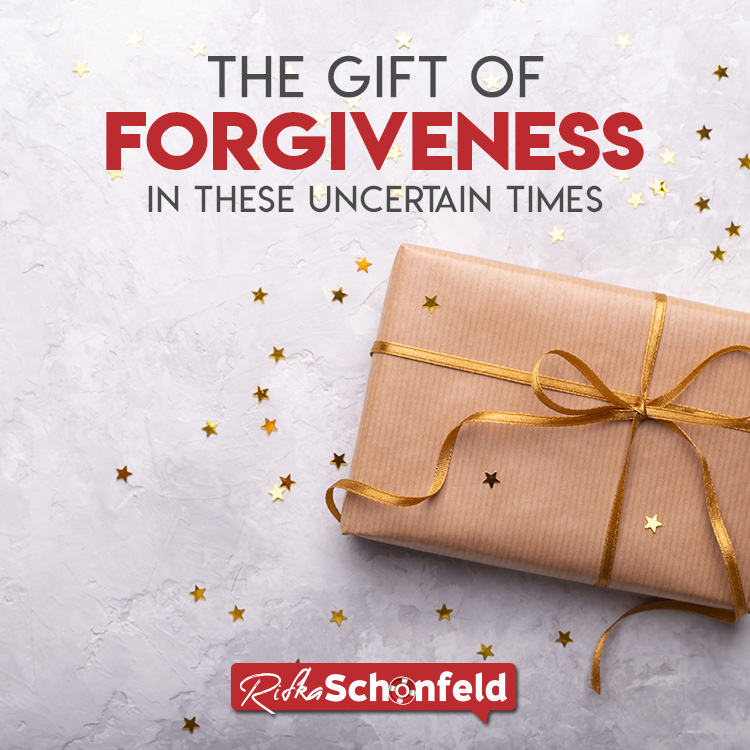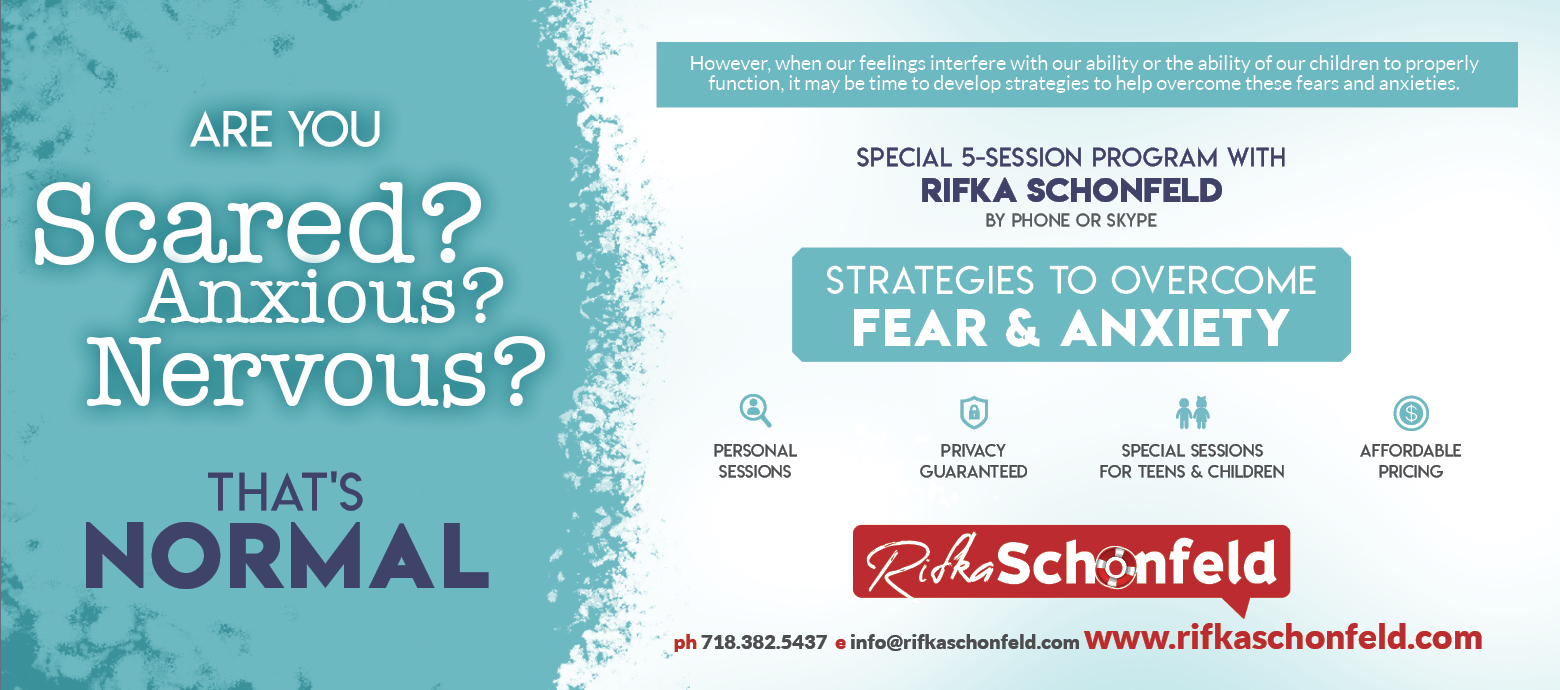The Gift of Forgiveness in These Uncertain Times
- rifkaschonfeld
- April 24, 2020
- 0 Comments

The Gift of Forgiveness in These Uncertain Times
I was on the playground at school in kindergarten. I distinctly remember the anger in my five-year-old body when my friend lied to me about a playdate I had not been invited to. I remember going home and crying to my mom about how sad I was that my friend lied to me. My mom explained that everyone makes mistakes and that we have to learn to forgive our friends. So that’s exactly what I did. I went to school the next day and told my friend that I forgave her. She said she was sorry and we hugged and made up.
Years later, I came to learn that that was not, in fact, forgiveness. Forgiving too easily can lock you into unhealthy patterns that can last for years. By not properly addressing an issue or event, we avoid things we actually need to confront. We bury things that should, in fact, be unearthed, and we protect people who need to be given boundaries. I’ve learned that forgiveness can sometimes make you weak and other times can make you feel strong. It can trap you or it can set you free.
What I have come to learn is that real forgiveness is much more nuanced than what you learn in kindergarten on the playground. It’s not a single step; it’s not a simple “I’m sorry”: forgiveness involves honesty, courage, self-reflection, the ability to listen closely. It involves the desire to forgive, and maybe not forget. And most importantly, it involves a lot of love, over and over again. Practicing forgiveness is its own reward, a gift both for yourself and for the world.
Katherine Schwarzenegger Pratt writes the above story about forgiveness in her new book The Gift of Forgiveness: Inspiring Stories from Those Who Have Overcome the Unforgivable. In her book, she tells the story of different people who experienced unforgivable things and yet managed to forgive and move forward.
Why am I writing about forgiveness right now? When faced with uncertainty and loss, we might find ourselves feeling anger or pain – at others and at the circumstances we are stuck in. What Pratt’s story tells us is the forgiveness is nuanced, and something we all can gain from, if practiced correctly. President of the International Forgiveness Institute at UWMadison, Robert Enright, PhD, has spent his career researching forgiveness. His book Forgiveness is a Choice: A Step-by-Step Process for Resolving Anger and Restoring Hope provides insight into the ways that forgiveness truly is a gift that betters our quality of life once we grant it.
Enright explains some essentials to help us understand forgiveness:
- Forgiveness is not a bargain or negotiation. We cannot think that we will grant forgiveness and then a person will change. Forgiveness is a risk. We don’t always know what the results of that forgiveness will be. Perhaps the other person will change, perhaps he or she will remain the same. Perhaps you, the forgiver, will be changed and discover that the offenses that seemed quite terrible are somehow much more easily tolerated.
- Forgiveness is a process. The researchers at the UWMadison discovered that saying “I forgive you” is not enough. Forgiveness is not simply saying those words, even if we mean them because the angry feelings can often return. Instead, people need to go through a process in order to understand our feelings. We also need to take concrete action.
- Forgiveness can help heal anxiety and fear. A Canadian psychiatrist, R.C. Hunter, was one of the first therapists to discuss the benefits of forgiveness. He reported that through forgiveness people can heal a wide variety of psychological symptoms. Those who were anxious or depressed or even paranoid showed a reduction in symptoms and an increase in inner peace through the forgiveness process. Another psychiatrist, Robert Fitzgibbons, uses forgiveness in therapy. He found that when a person forgives, fear is reduced. He believes this is because with forgiveness, guilt is reduced.
- Forgiveness can help build emotional maturity. Israeli psychiatrist Morton Kaufman found that genuine acts of forgiveness leads to an improvement of emotional maturity. As we forgive, we are more capable of nurturing others and genuine love.
During these unprecedented times, we may all have extra time for some soul-searching. As we are flooded with anxiety and fear during this pandemic, we can look inward toward the process of forgiveness to help us grow and thrive. It may only be a beginning, but I would venture to say it’s a gift worth giving ourselves and those around us.



